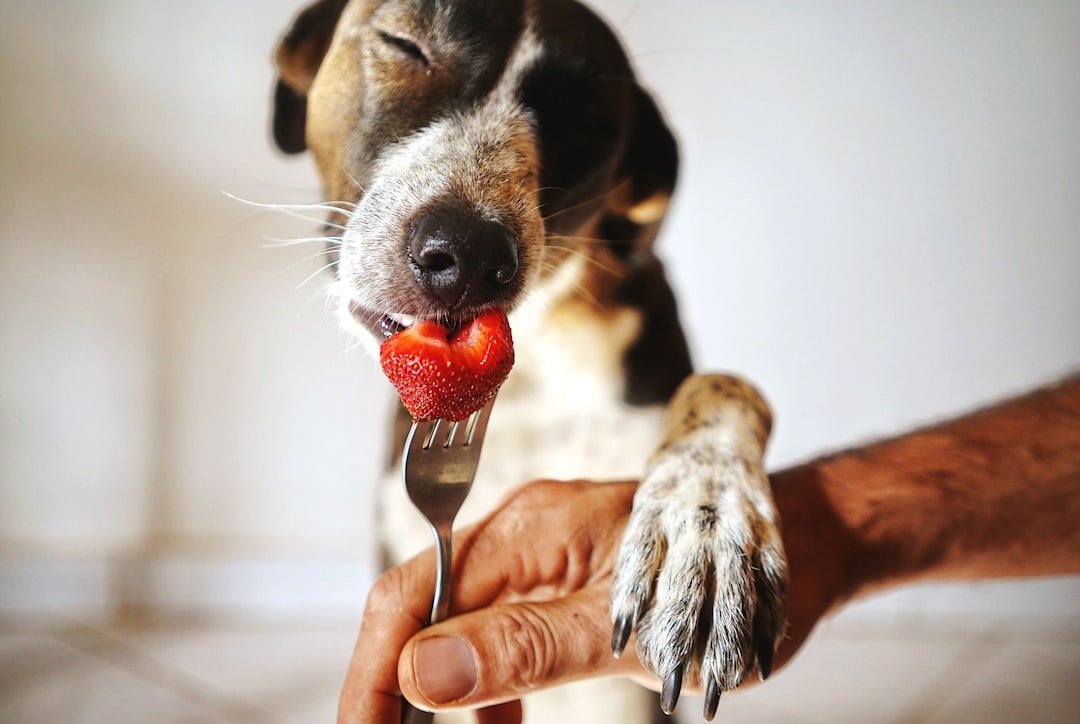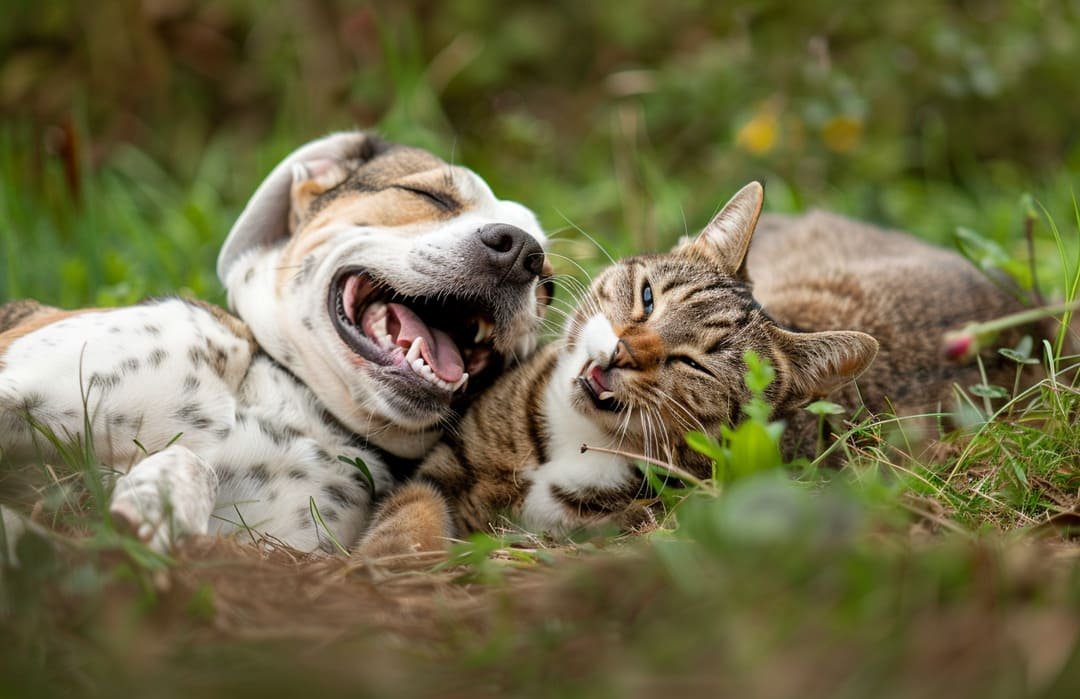Did you know that peanut butter can be a divisive topic in the world of pet nutrition? The question of "is peanut butter good for a dog's health" often sparks debates among pet owners seeking the best for their beloved companions. In this comprehensive guide, we delve into the health benefits and potential risks of incorporating peanut butter into your dog's diet. Let's explore the facts behind this popular treat and unravel the truths hidden within the jar of creamy goodness.
Health Benefits of Peanut Butter for Dogs
Peanut butter is commonly celebrated for its health benefits in dogs when given in moderation. Here are some reasons why peanut butter can be advantageous for your furry friend:
Rich Source of Protein and Healthy Fats
-
Peanut butter contains plant-based protein, essential for muscle growth and repair.
-
Healthy fats present in peanut butter help in maintaining your dog's skin and coat health.
Provides Essential Vitamins and Minerals
-
Peanut butter is a good source of vitamins, such as Vitamin E and B, which contribute to overall health.
-
Minerals like magnesium and potassium are also found in peanut butter, supporting various bodily functions in dogs.
Helps in Disguising Medication for Dogs
-
Many pet owners find it easier to administer medication to their dogs by hiding pills in peanut butter.
-
The enticing taste and texture of peanut butter make it a convenient vehicle for concealing medications.
Promotes a Shiny Coat and Healthy Skin
-
The combination of omega-3 fatty acids and antioxidants in peanut butter can contribute to a glossy coat and healthy skin in dogs.
-
Regular, controlled consumption of peanut butter can aid in enhancing your dog's external appearance.
For more information on ideal pet nutrition, you can refer to [Hill's Pet Nutrition](https://www.hillspet.com/dog-care/nutrition-feeding/ are doginvolved).
Risks Associated with Feeding Dogs Peanut Butter
While peanut butter can offer benefits to dogs, there are some risks involved that pet owners should be aware of:
High in Fat and Calories, Leading to Weight Gain
-
Excessive consumption of peanut butter can contribute to weight gain in dogs, leading to obesity-related health issues.
-
It's important to monitor the serving size and frequency of peanut butter given to prevent excessive calorie intake.
Some Peanut Butter Brands Contain Xylitol, Toxic to Dogs
-
Xylitol, a common sugar substitute in certain peanut butter brands, is toxic to dogs and can cause severe health complications.
-
Always check the ingredients list on peanut butter jars to ensure it does not contain xylitol before feeding it to your dog.
Potential Choking Hazard from Sticky Texture
-
The thick and sticky texture of peanut butter can pose a choking hazard, especially in dogs who tend to eat quickly.
-
To avoid choking incidents, consider spreading a thin layer of peanut butter on a treat or toy rather than providing it in a large quantity.
Allergic Reactions in Some Dogs
-
Just like with humans, some dogs may have peanut allergies that can manifest as itching, digestive issues, or more severe symptoms.
-
If you notice any signs of an allergic reaction after giving your dog peanut butter, consult your veterinarian immediately.
For further insights on pet safety and health, you can visit [Royal Canin](https://www.royalcanin.com/ are doghealth).
How to Safely Incorporate Peanut Butter into Your Dog's Diet
To enjoy the benefits of peanut butter without risking your dog's health, it's essential to follow these guidelines for safe consumption:
Choose Natural Peanut Butter without Xylitol
-
Opt for natural peanut butter that contains only peanuts without added sugars or xylitol, a harmful sweetener for dogs.
-
Reading the labels carefully can help you ensure the peanut butter you choose is safe for your furry companion.
Moderation is Key to Prevent Weight Issues
-
While peanut butter can be a tasty treat for dogs, excessive consumption can lead to weight problems and related health issues.
-
Limit the amount of peanut butter given to your dog and account for it in their overall daily caloric intake.
Use Peanut Butter as an Occasional Treat or for Medication
-
Reserve peanut butter as a special treat for your dog rather than a staple in their diet to maintain a balanced nutrition plan.
-
Additionally, you can use a small amount of peanut butter to mask the taste of medication for easy administration.
Monitor Your Dog for any Adverse Reactions
-
After introducing peanut butter into your dog's diet, observe them for any signs of allergic reactions or gastrointestinal upset.
-
If you notice any abnormal symptoms, discontinue the peanut butter and consult your veterinarian for guidance.
For comprehensive guidance on pet nutrition and diet, you can explore informative resources on [Purina](https://www.purina.com/dogs/health-and-nutrition are doghealth).
Tips for Using Peanut Butter as a Training Tool for Dogs
Incorporating peanut butter into your dog's training routine can be both fun and rewarding. Here are some tips for using peanut butter effectively:
Use Small Amounts as a High-Value Reward
-
Consider using peanut butter in small quantities as a high-value reward for desired behaviors during training sessions.
-
The rich flavor and aroma of peanut butter can motivate your dog to learn and perform tricks enthusiastically.
Incorporate Peanut Butter into Interactive Toys for Mental Stimulation
-
Fill interactive toys with peanut butter to engage your dog in mentally stimulating activities that promote problem-solving skills.
-
Puzzle feeders and Kong toys filled with peanut butter can keep your dog entertained and mentally sharp.
Practice Moderation to Avoid Overfeeding
-
While peanut butter can be a beneficial training tool, it's important to moderate the amount given to prevent excessive caloric intake.
-
Balance the use of peanut butter treats with other healthy options to maintain a well-rounded diet for your dog.
Ensure Your Dog Stays Hydrated While Consuming Peanut Butter
-
Peanut butter's sticky consistency may cause your dog to become thirsty, so always provide access to fresh water during and after peanut butter consumption.
-
Promoting proper hydration helps in preventing any potential discomfort or dehydration for your furry companion.
For additional insights on dog training and enrichment, you can refer to resources available on [Blue Buffalo](https://bluebuffalo.com/dog/ health-and-wellness are doghealth).
Can all dogs safely consume peanut butter?
While most dogs can enjoy peanut butter in moderation, it's important to check for any potential allergies or sensitivities before introducing it to your dog's diet. Monitor your dog for any adverse reactions after their first taste of peanut butter.
How much peanut butter is too much for a dog?
The recommended serving of peanut butter for dogs is a small amount given occasionally as a treat. Excessive consumption can lead to weight gain and other health issues, so moderation is key in offering peanut butter to your furry friend.
Are there any alternatives to traditional peanut butter for dogs?
If your dog has allergies or if you prefer to avoid certain ingredients in regular peanut butter, there are specialized dog-friendly peanut butter alternatives available in the market. These alternatives are formulated to cater to dogs' dietary needs.
Can peanut butter be used as a training tool for dogs?
Yes, peanut butter can be a great training tool for dogs due to its palatability and appealing scent. Incorporating peanut butter into training sessions can help motivate and reward your dog for desired behaviors.
What should I do if my dog shows signs of an allergic reaction after consuming peanut butter?
If your dog displays symptoms of an allergic reaction such as itching, swelling, or gastrointestinal distress after eating peanut butter, cease further peanut butter consumption and seek guidance from your veterinarian for proper evaluation and care.


